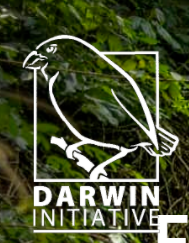The work of IIRR in addressing global challenges faced by rural communities is built through gaining key funding packages and grants. It is therefore a pleasure to announce the three latest grants secured by the organization, from AVPN, the Darwin Initiative, and the African Development Bank.
Darwin Initiative
 The Darwin Initiative fund aims to explore the impact of agricultural practices on biodiversity, livelihoods, and climate, promote responsible stewardship of natural assets, enhance benefit-sharing from use of biodiversity, and contribute towards reversing the increase in threats of extinctions to the world’s flora and fauna. The IIRR Philippine office successfully secured funding for a new biodiversity restoration and ecosystems services project. This three-year project aims to both improve coastal ecological resilience and reduce poverty. Mangrove and coastal ecosystem rehabilitation will facilitate growth of diverse and multi-strata bio-shields, enabling local communities to support themselves and gain protection from climate change risks. The project will use integrated approaches that tie biodiversity restoration with strengthening community-based institutional infrastructure and conservation education. For example, education campaigns targeted to youth will enhance awareness around prioritizing ecosystem health, whilst the entrepreneurship capacities of women, particularly those from poorer families, will be developed by offering them critical access to biodiversity-based opportunities for asset accumulation. Overall, coastal communities will be able to partake in gender- and nutrition-sensitive, agro-biodiversity rich, climate resilient, coastal homestead agriculture. This project aims to contribute towards the Sustainable Development Goals, the Aichi Biodiversity Targets, the Convention on Biological Diversity, and the Nagoya Protocol on Access and Benefit Sharing.
The Darwin Initiative fund aims to explore the impact of agricultural practices on biodiversity, livelihoods, and climate, promote responsible stewardship of natural assets, enhance benefit-sharing from use of biodiversity, and contribute towards reversing the increase in threats of extinctions to the world’s flora and fauna. The IIRR Philippine office successfully secured funding for a new biodiversity restoration and ecosystems services project. This three-year project aims to both improve coastal ecological resilience and reduce poverty. Mangrove and coastal ecosystem rehabilitation will facilitate growth of diverse and multi-strata bio-shields, enabling local communities to support themselves and gain protection from climate change risks. The project will use integrated approaches that tie biodiversity restoration with strengthening community-based institutional infrastructure and conservation education. For example, education campaigns targeted to youth will enhance awareness around prioritizing ecosystem health, whilst the entrepreneurship capacities of women, particularly those from poorer families, will be developed by offering them critical access to biodiversity-based opportunities for asset accumulation. Overall, coastal communities will be able to partake in gender- and nutrition-sensitive, agro-biodiversity rich, climate resilient, coastal homestead agriculture. This project aims to contribute towards the Sustainable Development Goals, the Aichi Biodiversity Targets, the Convention on Biological Diversity, and the Nagoya Protocol on Access and Benefit Sharing.
Asia Venture Philanthropy Network
 IIRR’s Philippines office is also engaged in rural COVID-19 response work. As recent publications from our Philippine leaders show, the pandemic has affected rural communities through creating agri-food system bottlenecks, putting rural households at risk of food insecurity. This recent AVPN grant will allow IIRR to implement integrated community-based development programs which take a holistic focus on primary health care, food security, and nutrition and livelihoods. IIRR’s COVID-19 response projects have been varied and wide-ranging. This grant allows IIRR to intensify its response in the Philippines in a sustainable, community-managed way. The project will be centred around reducing local transmission rates through health and nutrition education, enhancing access to primary health care, and strengthening the capacity of local health workers. Crucially, the project aims to identify capacity gaps within the community so that resources can be appropriately allocated to engender long-term, sustainable resilience and risk-response programs. Alongside this, the project will support the national government’s Barangay Health Emergency Response Teams (BHERTs) to deliver health, nutrition, and vaccination training.
IIRR’s Philippines office is also engaged in rural COVID-19 response work. As recent publications from our Philippine leaders show, the pandemic has affected rural communities through creating agri-food system bottlenecks, putting rural households at risk of food insecurity. This recent AVPN grant will allow IIRR to implement integrated community-based development programs which take a holistic focus on primary health care, food security, and nutrition and livelihoods. IIRR’s COVID-19 response projects have been varied and wide-ranging. This grant allows IIRR to intensify its response in the Philippines in a sustainable, community-managed way. The project will be centred around reducing local transmission rates through health and nutrition education, enhancing access to primary health care, and strengthening the capacity of local health workers. Crucially, the project aims to identify capacity gaps within the community so that resources can be appropriately allocated to engender long-term, sustainable resilience and risk-response programs. Alongside this, the project will support the national government’s Barangay Health Emergency Response Teams (BHERTs) to deliver health, nutrition, and vaccination training.
African Development Bank

IIRR, in consortium with the Acholi Private Sector Development company, has begun a partnership with the Uganda Ministry of Agriculture, Animal Industry and Fisheries to implement the Agriculture Value Chain Development Programme (AVCP1), funded by the African Development Bank.
The project will target 234,994 rice and maize smallholder farmers with the main objective of improving their household incomes, food security, and climate resilience through commercial agricultural practices, sustainable natural resources management and agricultural enterprise development. The focus will be on developing competitive and sustainable value chains through building of public private partnerships amongst the key actors: researchers, extension workers, seed companies, agro-input dealers, farmer organizations, farmers, traders, millers/processors, insurance and financial institutions.
The project, valued at $3.1 million, will be implemented in 15 districts of Central and Western Uganda.
United Nations Development Programme (UNDP)
IIRR will be implementing the project “Fostering Sustainability and Resilience for Food Security” (F-SURE) funded by the Global Environmental Facility (GEF) through UNDP and UN FAO. Overall, the project intends to enhance the resilience of communities and ecosystems to climate change and improve food security through addressing environmental drivers of food insecurity.
IIRR will manage the small grants to local NGOs /CBOs appraised to implement small grant projects. IIRR will also promote climate-resilient agricultural practices based on the communities’ needs and promote a number of livelihood and ecosystem based livelihood strategies for farmers and farming households. Among the livelihood options that will be promoted are ecotourism, aquaculture, Post-Harvest management and agri processing, value addition, off-farm trading, agroforestry, dairy products among others.
This project is valued at $150,000 and will be implemented in Karamoja region in North East Uganda.



